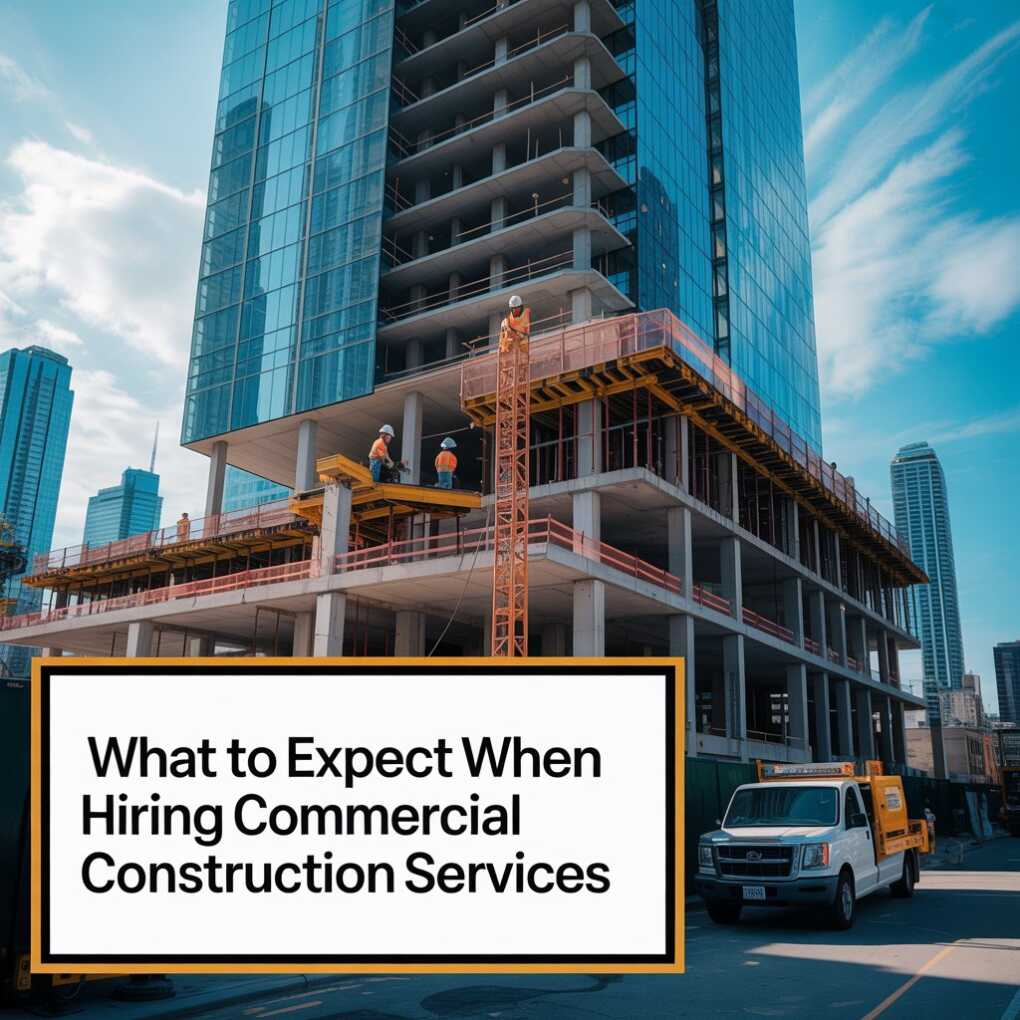Undertaking a commercial construction project is a significant investment—one that demands foresight, experience, and the right team of professionals to bring it to life. Whether you’re building a retail plaza, renovating an office tower, or creating a custom industrial space, success depends on aligning expectations early and managing the process efficiently.
If you’re considering commercial construction services in Toronto, it’s important to know not just what to look for in a contractor, but also what the journey will realistically involve. Here’s what you can expect every step of the way, from initial planning to final occupancy.

Understanding Your Project Scope and Feasibility
Before any blueprints are drawn or permits filed, you’ll need a comprehensive understanding of what’s possible. This starts with a feasibility analysis—evaluating the lot, zoning restrictions, budget range, and your timeline. A seasoned construction partner should be able to assist you in scoping out realistic parameters based on Toronto’s regulatory framework and market conditions.
At this stage, expect to discuss the purpose of the building, any special features you require (like green certifications, LEED standards, or warehouse-grade ceilings), and how to balance quality with budget efficiency.
Navigating Local Zoning and Permits
Toronto has a dense urban core and a complex set of zoning by-laws. From setbacks and height restrictions to parking minimums and usage classifications, the approval process can be intricate. You’ll likely need site plan approvals, building permits, and potentially committee of adjustment hearings if your plans don’t align with current zoning rules.
An experienced construction team will typically guide you through these processes or even manage them on your behalf—especially helpful when coordinating with the City of Toronto’s Planning and Building Divisions.
For an in-depth look at municipal regulations, the City of Toronto’s building permit portal provides helpful information.
Building a Realistic Timeline
Timelines vary widely depending on the project type, but clarity upfront is key. A small retail fit-out may take 3–4 months, while a full-scale commercial build can stretch well over a year. Expect your contractor to break down your schedule into phases: planning, design, permits, site preparation, structural build, systems installation, and final inspections.
Also, anticipate seasonal factors—Toronto’s winters can delay groundworks and foundation pours, while supply chain disruptions may extend lead times on certain materials.
Budgeting for the Expected (and Unexpected)
Your budget should reflect more than bricks and mortar. Site preparation, architectural and engineering fees, permit costs, environmental assessments, utility connections, and contingency allowances all contribute to your total spend.
One of the most common mistakes is underestimating soft costs or assuming change orders won’t occur. A reputable commercial construction firm will give you a detailed cost breakdown—and flag potential risk areas early.
It’s also wise to review recent cost benchmarks published by groups like Altus Group to understand the going rate for various types of commercial construction in Ontario.
Coordinating with Architects and Engineers
Construction projects rely on an integrated design team. That includes architects, structural engineers, mechanical/electrical consultants, and possibly sustainability experts. You can either bring your own team or have your contractor coordinate design-build services.
The key to a smooth build lies in early collaboration. Aligning on design intent, mechanical requirements, material choices, and sustainability goals in the early stages helps avoid downstream changes that impact timelines and cost.
Managing Site Safety and Compliance
Safety and regulatory compliance are non-negotiable on commercial sites. The right contractor should have a comprehensive health and safety plan aligned with the Occupational Health and Safety Act (OHSA), along with WSIB coverage, liability insurance, and a record of safe work practices.
Expect regular site inspections, safety training for all workers, and documentation logs that can be audited. For occupied buildings or urban sites, special attention is required to protect pedestrian and adjacent property safety as well.
Tracking Progress and Communication
One hallmark of a professional construction partner is how they communicate throughout the process. You should expect regular progress updates, milestone reports, and proactive notice of any delays or issues.
Project management platforms (like Procore or Buildertrend) are often used to give clients real-time access to scheduling, budgets, and documents. Clear lines of communication—between client, contractor, subcontractors, and consultants—help avoid costly misunderstandings and ensure you stay informed without being overwhelmed.
Understanding Final Inspections and Handover
Once construction wraps up, the process doesn’t end immediately. You’ll need to complete municipal inspections, fire code compliance checks, accessibility audits (under the Accessibility for Ontarians with Disabilities Act), and obtain an occupancy permit.
A good contractor will walk you through this close-out process and provide necessary documentation—warranties, maintenance manuals, equipment certifications, and final as-built drawings.
Post-handover, some firms also offer post-construction support or maintenance plans for added peace of mind.
Why the Right Partner Makes All the Difference
A commercial construction project is more than just a structure—it’s a platform for your business to grow, your tenants to thrive, and your brand to make an impression. Choosing the right partner means more than hiring a builder; it’s about selecting a guide who can navigate regulations, budgets, timelines, and quality with precision.
For businesses exploring commercial construction services in Toronto, it’s important to look beyond flashy portfolios and focus on transparency, experience, and a proven process. That’s what lays the foundation for a successful build—not just on paper, but in real life.
Setting Your Project Up for Long-Term Success
At the end of the day, commercial construction is an evolving, collaborative effort—one that hinges on trust, clarity, and strategic execution. By knowing what to expect, asking the right questions, and working with a team that values communication and quality, you’ll not only complete your build—you’ll set your project up for long-term success in one of Canada’s most dynamic cities.
